Description
A Simple Koran: The Reconstructed Historical Koran
The standard Koran is arranged by length of the chapter, not chronologically. The longest chapter is at the beginning and the shortest chapters are at the end. This makes it confusing and difficult to understand.
Mohammed is the key to the Koran. When his life is integrated into the verses, the context is restored. This is the way the Koran originally unfolded. It was recorded over the course of Mohammed’s life. When you weave Mohammed into the Koran, it becomes an epic story that ends with the triumph of Islam over all of Arabia.
A SIMPLE KORAN recreates the historical order of the Koran of Mohammed’s day. The first chapters start with Mohammed’s first recitation and the last chapters are those he recited before he died. Mohammed’s life gives the Koran clarity, meaning, and order.
The Islamic Trilogy—Koran, Sira, Hadith
Islam is a political system, a culture, and a religion based upon the Koran, Sira (life of Mohammed), and Hadith (the Traditions). The Islamic Trilogy series integrates the three primary texts to reveal the entire Islamic political doctrine of the treatment of non-Muslims. The Trilogy is authoritative and fact-based. All content can be confirmed by the use of reference numbers in the primary source documents. All of the primary sources are used to give the complete picture of Islam’s political doctrine.
English
6″ X 9″ Paperback
Number of Pages: 418

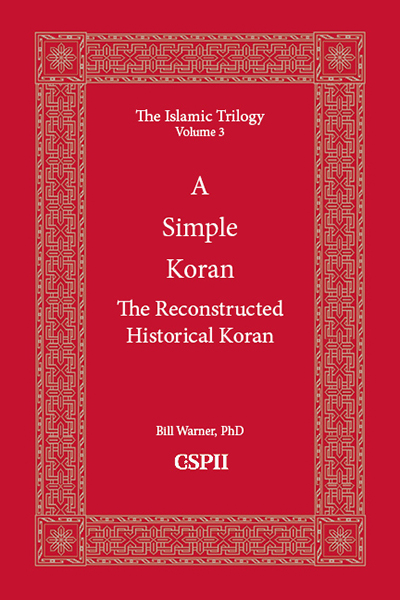
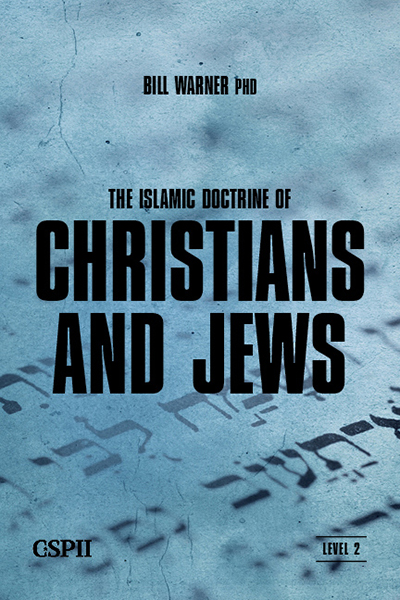
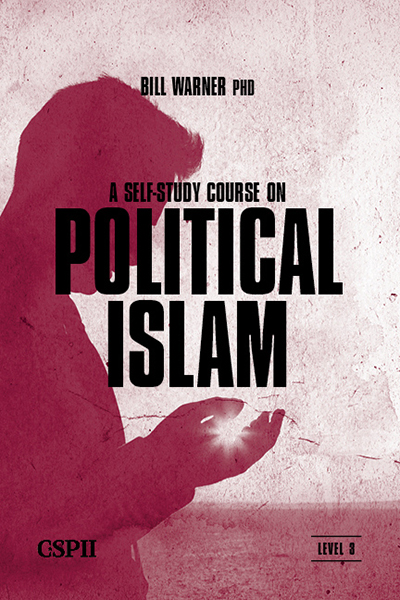
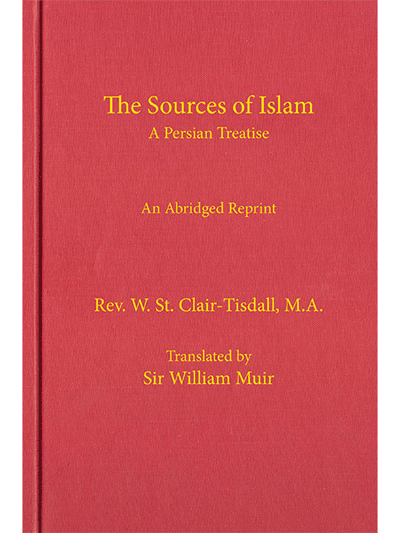
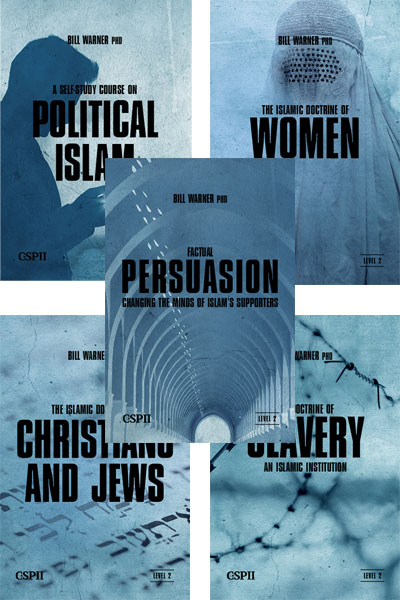

Amy –
Westerners MUST understand what Islam is!
By Amy December 20, 2014
This is great for Westerners as it explains exactly what Muslims believe in. Very eye opening and any American who wants to advocate for Islam MUST first read the Koran so they know exactly what it is they are advocating for!
RNOTWL –
Increase your learning…
By RNOTWL December 16, 2014
Very informative to read, to understand abrogation, context, chronological timeline for Mecca and Medina. Recommend to all Muslims.
kathryn –
EXCELLENT SHOWS WHAT THEY LEAVE OUT–CLEARLY
By kathryn March 2, 2014
BROTHER SPOKE 16 LANGUAGES PHOTO MEM THIS IS FIRST BOOK TO COVER ALL AND EXPLAIN CLEARLY WHAT CONTENTS R W/O TAQIYA AND WHERE—
Sathari Singh Khalsa –
A Koran for Reading
By Sathari Singh Khalsa on February 14, 2014
Reading the Koran in context is difficult as it is not organized traditionally, this book makes understanding the Koran easy. Everyone who care about current events should read the Koran. the founding Fathers the Adams and Thomas Jefferson read it when at war with the Barbary Pirates and what they learned guided their course in dealing with that threat.
Take the time and read this book you will never be the same.
Timothy Scott –
Forewarned is forearmed.
By Timothy Scott December 5, 2013
I saw Mr. Warner’s video and decided to buy his books. I’ve got five of them now. You should too.
donna hawks –
Simple Koran
By donna hawks October 30, 2013
Love how it integrates the various aspects of Islam: the Koran, Sunnah, and Hadith clearly so we, as infidels, can get the truth.
John L. Kenny –
The Organized Koran
By John L. Kenny on August 17, 2013
Made the Koran understandable by arranging the verses chronologically and by subject. Learn what the jihadists are reading.
(actually, most muslims do not actually read the book.)
G. Wenner –
This printing of the simple Koran is written to understand it better
By G. Wenner on November 17, 2009
The Koran is very diffcult to understand because the verses are mixed up and very confussing to sort out as it is being read. This author wrote a much simplier version (thank you very much) that we can all understand much more clearly. And now we can all see for ourselves, the what, where, why, and when, concerning “Jihad” and “Radical Islam”.
C. henry –
Brilliant
By C. henry on August 18, 2009
This Koran (Qu’ran) is perfect for beginners. It not only arranges the chapters in some sort of chronological order but the language is simple and plain and it puts it in context as reading the koran can be very confusing as it has no context in which the revelations supposedly appears to Muhammed. A brilliant idea.
Donald N. Anderson –
Definitely a superior way to read the Koran
By Donald N. Anderson on January 5, 2009
The Center for Study of Political Islam (CSPI) has performed a great service by preparing an English translation of the Koran that uses clear language and faithfully reports the Koran’s statements in a logical sequence. They provide context by using brief quotations from the “Sirat Rasul Allah” (Mohammed’s biography), Sir William Muir’s “The Life of Mohammed”, “The History of al-Tabari”, Bukhari’s Hadith, and Muslim’s Hadith. They have ordered the verses by topic within the chronology of revelation. This adds considerable clarity to the incredible jumble created when Uthman’s (the 3rd Caliph after Mohammed) had the chapters ordered by size rather than chronology or topic. Reportedly Umar’s (the 2nd Caliph after Mohammed) secretary Zayd had collected and written down the Koran in the order revealed, but Uthman had the order changed and all other compilations destroyed. My high score applies only to this translation and presentation by CSPI.
If you are interested in learning about Islam, don’t read the Koran first. Read a good biography of Mohammad followed by a collection of his sayings (hadiths). The CSPI offers “Mohammed and the Unbelievers” and “The Political Traditions of Mohammed” that cover the political aspect of these topics.
As an example of the simplified sentence structure in “A Simple Koran” compare it with the same verse in 4 other translations:
A Simple Koran (p.363);
“9:29 Make war on those who have received the Scriptures [Jews and Christians] but do not believe in Allah or in the Last Day. They do not forbid what Allah and his Messenger have forbidden. The Christian and Jews do not follow the religion of truth until they submit and pay the poll tax [jizya], and they are humiliated.”
Abdullah Yusuf Ali;
“9:29 Fight those who do not believe in Allah nor the Last Day, nor hold that forbidden which has been forbidden by Allah and his Messenger, nor acknowledge the Religion of Truth until they submit and pay the jizya with willing submission, and feel themselves subdued.”
Mohammed Marmaduke Pickthall:
“9:29 Fight against such of those who have been given the Scripture as believe not in Allah nor in the Last Day, and forbid not that which Allah hath forbidden by His messenger, and follow not the religion of truth, until they pay the tribute readily, being brought low.”
Ahmed Ali:
“9:29 Fight those people of the Book who do not believe in God and the Last Day, who do not prohibit what God and his Apostle have forbidden, nor accept divine law, until all of them pay protective tax in submission.”
M. H. Shakir:
“9:29 Fight those who do not believe in Allah, nor in the latter day, nor do they prohibit what Allah and His Apostle have prohibited, nor follow the religion of truth, out of those who have been given the Book, until they pay the tax in acknowledgment of superiority and they are in a state of subjection.”
Of course the poetry of the Koran does not translate into other languages, but the meaning of the poetic lines does. The many translations render that meaning in very similar language. The Koran is almost always read in translation since very few Muslins know the Classical Arabic in which it was written.
All readers will notice the Koran’s incredible level of repetition. This was intentional by Mohammad and is mentioned in the Koran as important. Koranic logic relies heavily on repetition, emotion, insults, threats, and physical violence to advance its version of the truth. But for those of us raised on Aristotelian logic, the statements similar in substance to the following:
“How do we know the Koran is true?
Because it contains the words of Allah.
How do we know these are the words of Allah?
Mohammed said they were Allah’s words.
How do we know that Mohammed is Allah’s messenger?
Mohammed reported that Allah said that Mohammed is His messenger”
will not become convincing even after innumerable repetitions.
Most of the Koran is devoted to describing the evil fate of those Allah judges insufficiently faithful to the message delivered by Mohammed. These warnings about the torture chambers Allah has created for the unbelievers and hypocrites are often followed by a construction similar to “Allah is forgiving and merciful.”
The ethical dualism of Islam is also well described in the Koran with actions taken by Muslims defined as good while identical actions by unbelievers are defined as evil.
The Koran maintains that the Torah and the New Testament had been altered from the directives of Allah and that the Koran was the corrected version. Former Muslim terrorist Walid Shoebat discusses this point at some length in his book “Why I left Jihad”. He attempted to convert his wife to Islam, but she asked “Show me in the Bible the bad things the Jews did.” This led to him reading the Bible and making comparisons between the two texts and the real world. He became quite the scriptural scholar and ascertained to his satisfaction that the Koran was the text in error. He gave up his attempt to convert his wife and with great courage followed his own new knowledge.
About a third of the Koran is given over to Jihad. It lays out the rules for this warfare to expand the domination of Islam and provides for the slaughter of opponents, slave taking, ransoms, and booty sharing. Anyone who reads the Koran will be quickly disabused of the common claim the Jihad is primarily about “inner struggle.” It also quickly dissolves the silly concept that Islam is “a religion of peace.”
When laid out chronologically it is readily apparent that the Koran changed frequently throughout Mohammed’s life in ways that are particularly convenient to the “messenger.” Also some provisions apply only to him and give him privileges unavailable to the ordinary believer.
CSPI has collected the Koran’s verses pertinent to the Sharia (Islamic law) in a single 17 page chapter. Of this about a third covers legal provisions such as a man’s testimony being equal to two women’s and particular customs to be observed. Another third covers marriage, sex and divorce with a heavy emphasis on the latter. The remainder covers the religious requirements. Of course Islam is not defined by the Koran alone but in large part by the biography of Mohammed and his sayings (hadiths).
The Koran largely attempts to firmly establish the role of Mohammed as the messenger of Allah. Once this is accepted the life of Mohammed becomes the central guiding star for Islam.
The great majority of Muslims who have never read the Koran would find this translation approachable if perhaps not particularly reverent in the contextual commentary. For those of you the want to read the Koran’s concepts without the mind numbing repetition, the CSPI offers “An Abridged Koran.”
F. Rosenzweig Lives –
The Koran: The latest and the greatest of ’em all
By F. Rosenzweig Lives on February 27, 2007
A Simple Koran: Readable and Understandable (The Islamic Trilogy Series, Vol. 3) (Paperback)
Since 9/11, Americans have been trying to dope out the Islamic holy book, the Qur’an (or, more commonly, the Koran). However, unlike the holy books of the other great monotheistic religions (i.e., the Hebrew Bible and the Christian New Testament), the Koran can’t be read as a “freestanding” tome. Reading the Koran is like walking into the middle of a very esoteric conversation between two people you’ve never even met. A cold reading of the Koran makes no sense to non-Muslims who have no familiarity with the two other complementary sacred texts of Islam: the Hadiths (Ahaditha in Arabic), which are the traditions of Mohammed, and the Sira, biographies of Mohammed. These latter works are considered semi-canonnical by both Sunni and Sh’ia Muslims. The Koran is considered the verbatim word of Allah, engraved for all eternity in heavenly tablets. Thus, unlike the Holy Bible, which most Christians consider “inspired” by God, the Koran is considered by NORMATIVE Islam to be a literal transcription of Allah’s final uncorrupted message to mankind (“humankind” would be somewhat innacurate, and likely too PC a descriptive for most Muslims), transmitted by the Angel Gabriel himself directly to Mohammed, the “Seal of the Prophets” to all Muslims.
The Koran is a very recondite, confusing, tedious and downright “weird” read for most Westerners. As far as substance goes, many non-Muslim critics –likely including Pope Benedict — over the centuries have maintained it adds not a single ethical teaching to those previously proclaimed by the other two Abrahamic faiths, Judaism and Christianity. As to form, most English translations leave much to be desired, and, to make matters worse, a number of Koranic-linguistic scholars claim that about 20% of the Koran is ambiguous in the original classical Arabic!
Be that as it may, A Simple Koran solves the learning-curve problem of Westerners who want to delve into the Koran itself. It is written in modern “newspaper” (middlebrow) English, with foreign words defined. The thing that makes this Koran different from all the others on the market is that it is ordered chronologically — the standard versions are ordered by length of suras (separate chapters), not by chronicity — the pukkah Qur’an is always organized counter-intuitively into non-topical chapters called suras, because during his lifetime, Mohammed would have individual verses revealed to him unexpectedly and in surprising places. Often important topics (e.g., women’s rights, Jihad, polytheism) are discussed helter-skelter in non sequiter snippets throughout various different suras — an aya (verse) here, and an aya there. In A Simple Koran, much-needed commentary is provided in the form of references to relevant Hadiths and Sira so that Mohhammed’s life is woven back into the Koran, giving all-important context.
A Simple Koran — written and edited by anonymous scholars — sorts out and re-categorizes the hodge-podge of suras and ayas in the original version so that ease of readability and meaning is restored. Not a single word is ommitted from the standard version of the Koran. This volume contains 408 pages (the Koran itself is about the length of the New Testament).
Because the Koran is very repetitive — e.g., the story of Moses and Pharaoh is recounted more than thirty times! — the publishers offer an abridged version of 220 pages entitled An Abridged Koran. If you are not a theological or literary obsessive-compulsive purist (like me), you will learn the teachings of the Koran just as well from this thinner and cheaper little tome as from the unabridged version, since only redundant verses are expurgated in the abridged version.
In the final analysis, by reading A simple Koran (or An Abridged Koran) one can now determine for oneself if the Koran is (A) mostly seventh-century hate literature, (B) epic drama, (C) a nonpareil inspiration to living a more spiritual life, (D) one big exhortation to perform the sacrament of holy warfare against polytheists, infidels and pagans, or (E) none of the above (F) a little (or a lot) of some or all of the above, or (G) something quite different than any of the foregoing.
Now, at least you can apply your own critical and value judgments to the Koranic text itself, instead of wasting time with some lowbrow propagandistic pabalum-commentary ABOUT the Koran such as The Complete Idiot’s Guide to the Koran.
Thus, for better or for worse, get the “full blast” of Allah’s message by reading either A Simple Koran (unabridged) or An Abridged Koran.
Caveat: The publisher strongly recommends reading their versions of the companion-complementay Islamic sacred texts, the Hadiths, entitled The Political Traditions of Mohammed, and Sira, entitled Mohammed and the Unbelievers, before tackling the mystery of the Koran. The publisher insists that reading the Koran after taking in the background info provided by these volumes covering both Hadiths and Sira will give one a much better understanding of the Koran itself.